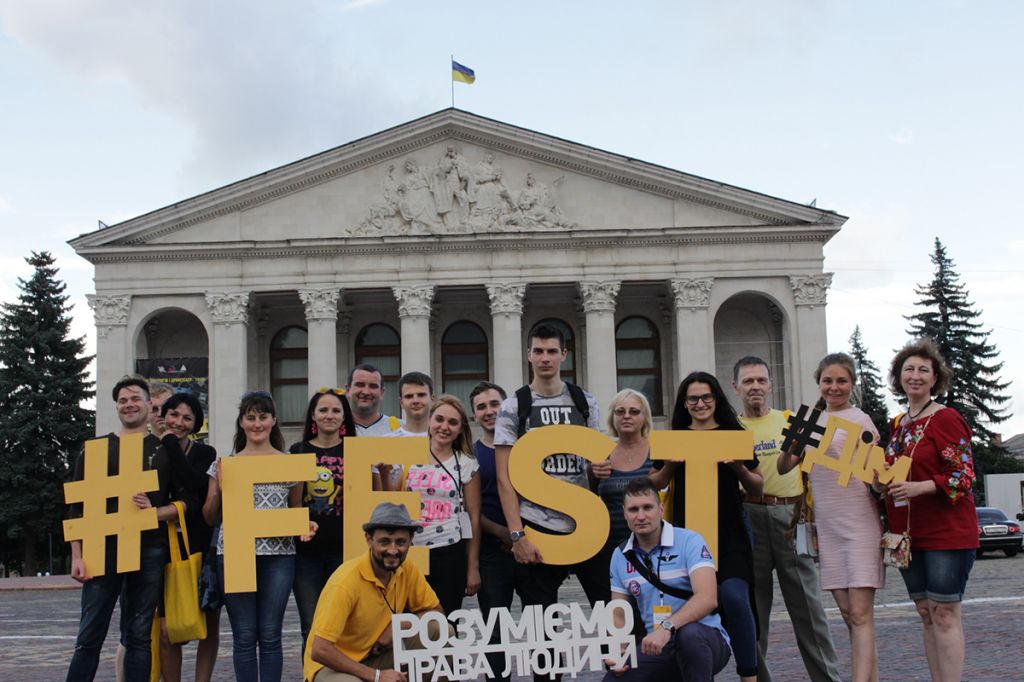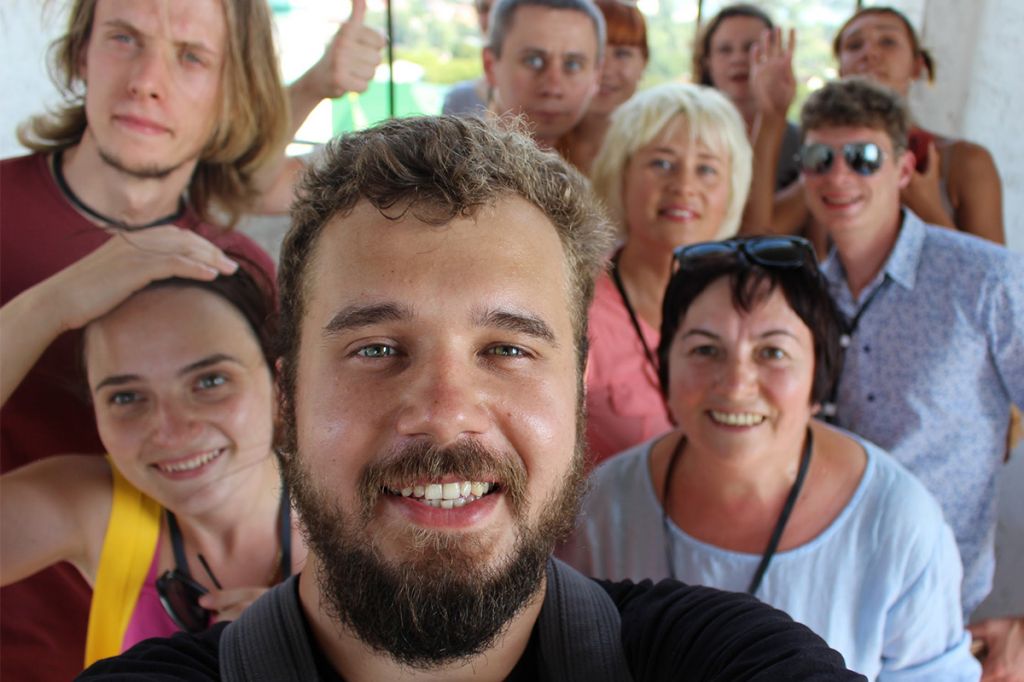
“We are satisfied with the results of the Festival. In addition to the Education Human Rights Fest, it is necessary to develop similar platforms. These can be educational forums, places for reconciliation; it’s essential to take into account the actual challenges and needs of society,” stated Borys Kondratiuk, Coordinator of the Festival.
Kondratiuk also shared his thoughts on the festival’s importance as “a platform for the education of young activists of civil society, a place to share experience in the field of human rights, and a place to meet colleagues and friends”, and concluded that a unique aspect of the festival is that it caters for “both beginners and professionals in the field of human rights, in addition, the Festival managed to effectively attract the local community”.
From 25 July to 3 August, festival participants enjoyed 90 hours of human rights related activities. They were joined by 40 speakers comprising experts, trainers, practicing lawyers and human rights defenders, coming from Ukraine, Belarus, Georgia, Kazakhstan and Moldova. The festival was organised by Educational Human Rights House Chernihiv, with the support of the Human Rights House Foundation, the Norwegian Ministry of Foreign Affairs and the National Endowment for Democracy (NED).
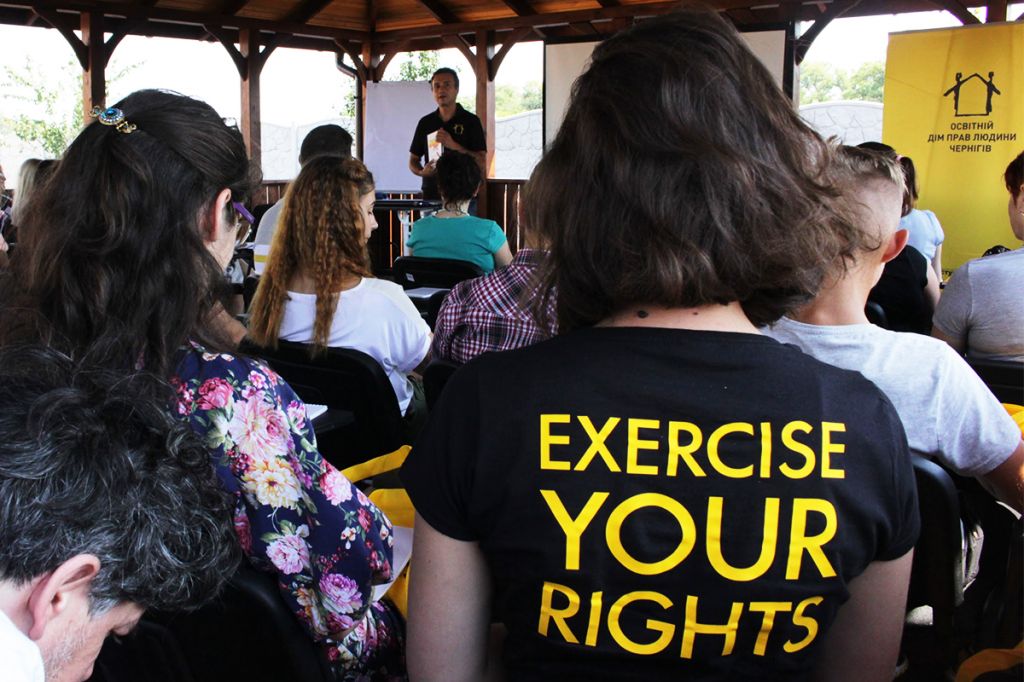
Taking part in a flash mob, participants, human rights defenders, and members of the Belarusian Human Rights House urged the President of Ukraine not to sign a draft law that would create a new procedure to elect the Ombudsman, on grounds that it would politicise this vital human rights institution.
The festival played host to a wide range of activities, including: a training session conducted by the Ukrainian Helsinki Human Rights Union entitled Standards of Human Rights in the Practice of Lawyers and Judges; the joint project Access to Public Information, undertaken by graduates of the Understand Human Rights programme who are involved in providing free legal receptions; an art exhibition called the #East-House project, by Vostok SOS, telling the stories of people who remain in the front line during the conflict in eastern Ukraine; a premiere of the documentary film The Transit Point, directed by Oleksiy Bida; and a presentation of the Human Rights Index monitoring system, a tool to monitor the attitudes of local government from the perspective of human rights.
Young activists from the House’s previous annual Human Rights Schools also met at the House as part of the festival.
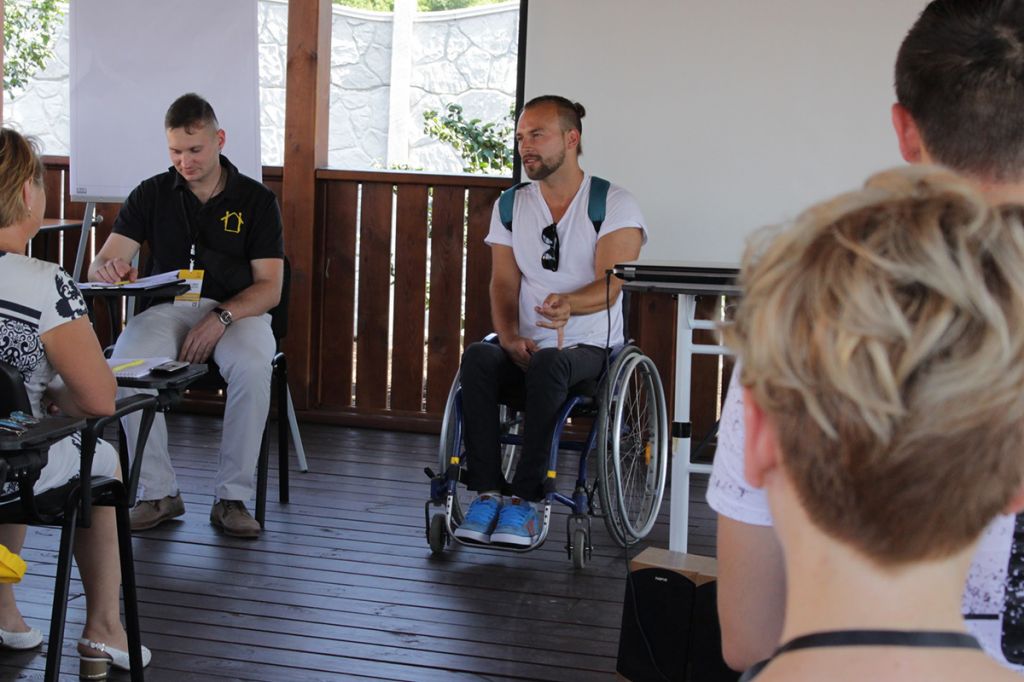
Dmytro Schebetyuk, co-founder of accessibility initiative Dostupno UA, marked the House with a “recommended” sticker.
Recognising the importance of making human rights education accessible for all people, Educational Human Rights House Chernihiv has made efforts to increase accessibility to the House, including constructing a wheelchair ramp and implementing accessibility features in bathrooms and other areas of the building. These were acknowledged during the festival by the co-founder of accessibility initiative Dostupno UA, who celebrated the upgrades and marked the House with a “recommended” sticker.
Educational Human Rights House Chernihiv was founded in 2014 by seven organisations from different parts of Ukraine. In the three years of its operation, it has held approximately 200 educational events and hosted more than 3,000 participants. The House has become recognised as an educational and resource center for human rights organisations, and has provided shelter and support for human rights defenders at risk.
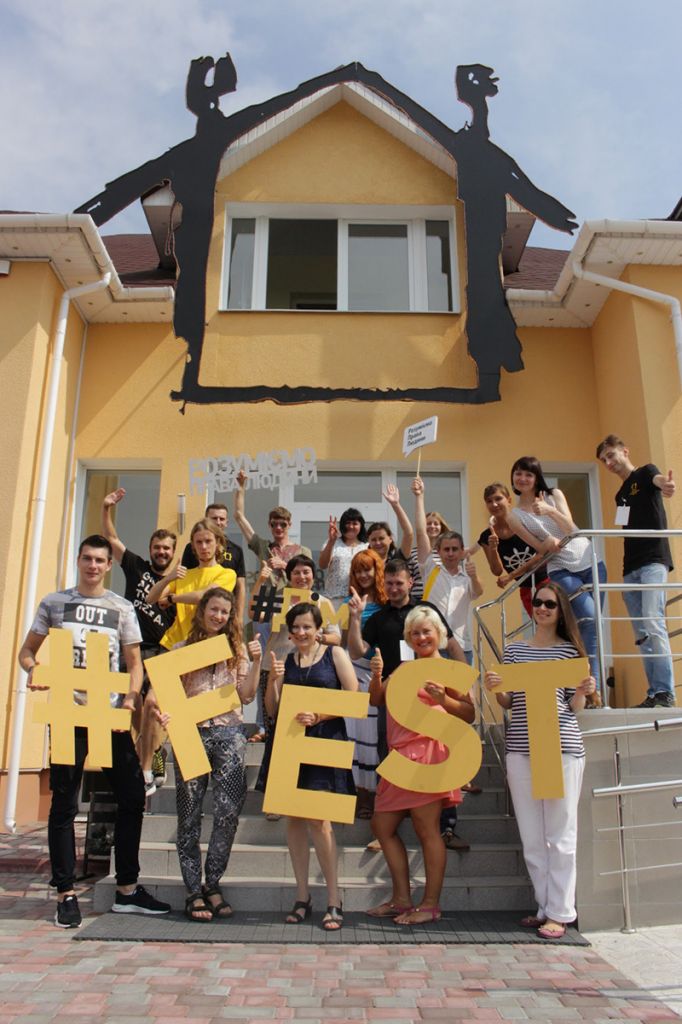
—
Newsletter
This article was first published as part of the newsletter of the Human Rights Houses and HRHF. Sign up to receive news and insight into human rights issues and country situations, the projects and activities of Human Rights Houses, and portraits and interviews with human rights defenders.
More on Educational Human Rights House Chernihiv
- Educational Human Rights House Chernihiv
- Belarusian human rights defenders in Chernihiv to start fourth cycle of BISH education programme
More on Ukraine


